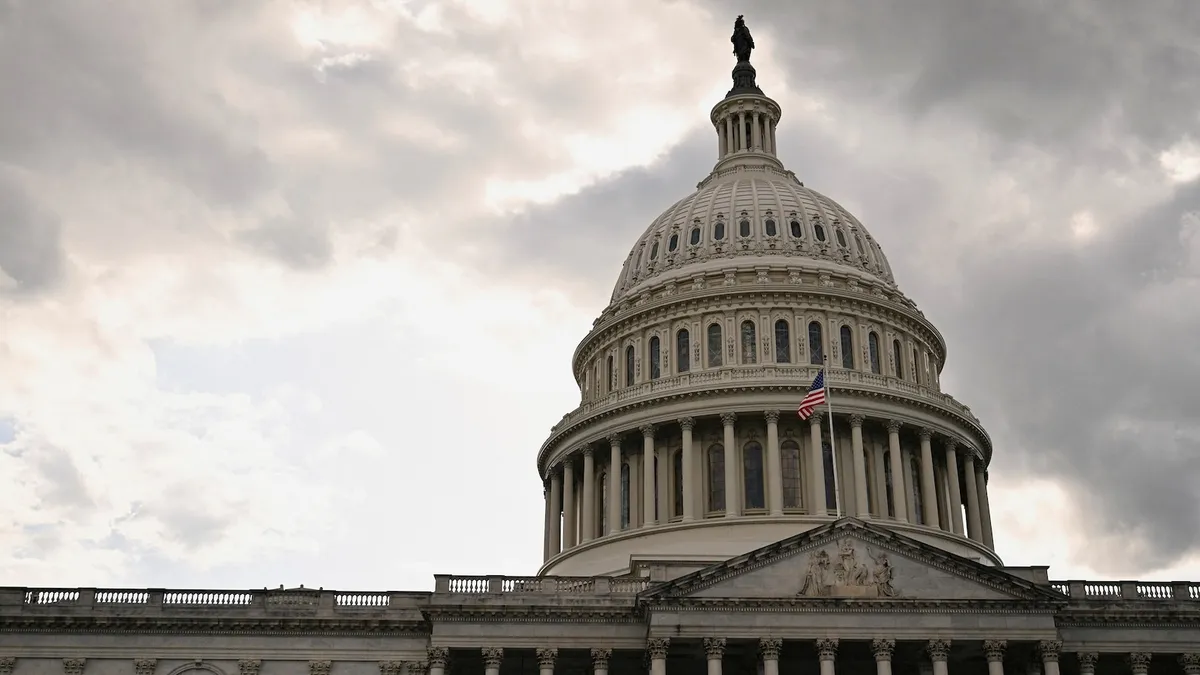
In a significant move towards regulating the cryptocurrency landscape, the U.S. Senate voted 66-22 late Monday to advance the GENIUS Act. This proposed legislation aims to establish comprehensive rules governing certain cryptocurrencies, particularly focusing on stablecoins. Despite facing opposition from some Democrats linked to former President Donald Trump's cryptocurrency ventures, the bill gained support from 16 Democratic senators, including notable figures like Sen. Cory Booker of New Jersey and Sen. Adam Schiff of California.
The GENIUS Act primarily addresses the issuance and exchange of stablecoins, a specialized form of digital currency that is pegged to the value of another asset, typically the U.S. dollar or commodities like gold. Stablecoins are designed to maintain a stable value, making them less volatile than traditional cryptocurrencies, which can experience significant price fluctuations. This stability is crucial for individuals who use these digital currencies for day-to-day transactions.
One of the most important features of the GENIUS Act is the requirement for stablecoin issuers to maintain a reserve of assets backing their cryptocurrencies. This provision aims to safeguard consumers by ensuring that they can cash out their holdings, even in the event of a sudden market downturn. Additionally, the legislation mandates that coin holders receive priority repayment in case of issuer bankruptcy, thereby offering further consumer protection.
The bill also includes compliance measures, requiring issuers to adhere to anti-money laundering regulations and anti-terrorism sanctions, ensuring a more secure framework for stablecoin transactions.
Supporters of the GENIUS Act, including Christian Catalini, founder of the MIT Cryptoeconomics Lab, have praised the bill as a groundbreaking initiative to formalize a critical segment of the cryptocurrency industry. They argue that it provides essential consumer protections while enabling traditional financial institutions to enter the digital currency market. “This opens the floodgates,” Catalini stated. “You’ll see entry by many issuers. Consumers will all have more choices, leading to increased competition and innovation in payments.”
Conversely, critics of the GENIUS Act contend that it presents a lenient regulatory framework that fails to adequately safeguard consumers. Sen. Elizabeth Warren of Massachusetts voiced her concerns on the Senate floor, stating, “While a strong stablecoin bill is the best possible outcome, this weak bill is worse than no bill at all.” Detractors also point to potential conflicts of interest, especially concerning Trump's involvement in cryptocurrency through his backing of firms like World Liberty Financial, which recently issued a stablecoin. Critics argue that the legislation does not sufficiently address these issues.
The passage of the GENIUS Act marks a pivotal moment in the evolving landscape of cryptocurrency regulation. While supporters view it as a step toward consumer protection and industry standardization, critics remain wary of its potential shortcomings. As this legislation moves forward, it will be crucial to monitor its impact on the cryptocurrency market and its effectiveness in safeguarding consumers against potential risks.
Understanding the GENIUS Act is vital for anyone involved in the cryptocurrency space, whether as an investor, consumer, or industry stakeholder. As this bill seeks to establish a regulatory framework for stablecoins, it could pave the way for greater acceptance and use of digital currencies in everyday transactions.